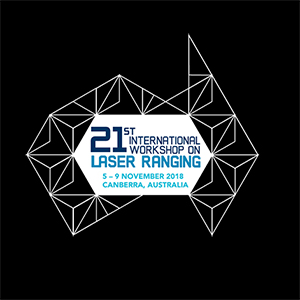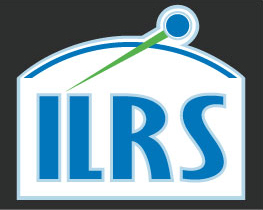 The Space Environment Research Centre (SERC) and the ILRS hosted the 21st International Workshop on Laser Ranging at the John Curtin School of Medical Research in Canberra, Australia during the week of November 05-08, 2018. The main workshop was followed by the one-day International Workshop on Space Debris Management. Professor Thomas Herring, Massachusetts Institute of Technology, Cambridge MA gave the keynote presentation to open the workshop; Associate Professor Moriba Jah, University of Texas at Austin presented the keynote opening to the Space Debris workshop. Over 150 registrants from 20 countries participated in the workshop. A tour of the EOS Space Research Centre (including the telescope facility) and barbeque dinner were held at Mount Stromlo following the Friday Space Debris Workshop.
The Space Environment Research Centre (SERC) and the ILRS hosted the 21st International Workshop on Laser Ranging at the John Curtin School of Medical Research in Canberra, Australia during the week of November 05-08, 2018. The main workshop was followed by the one-day International Workshop on Space Debris Management. Professor Thomas Herring, Massachusetts Institute of Technology, Cambridge MA gave the keynote presentation to open the workshop; Associate Professor Moriba Jah, University of Texas at Austin presented the keynote opening to the Space Debris workshop. Over 150 registrants from 20 countries participated in the workshop. A tour of the EOS Space Research Centre (including the telescope facility) and barbeque dinner were held at Mount Stromlo following the Friday Space Debris Workshop.
Over 150 registrants (photo, attendees list) from 20 countries participated in the workshop. A tour of the EOS Space Research Centre (including the telescope facility) and barbeque dinner were held at Mount Stromlo following the Friday Space Debris Workshop (photo).
The theme of the workshop “Laser Ranging for Sustainable Millimeter Geoscience” afforded presentations on a wide range of topics highlighting SLR contributions to research. The workshop consisted of nine oral sessions with posters for each session. The session topics were:
- SLR Contribution to Global Geodetic Observing System – A 2020 Perspective
- Improvements in the SLR Product Quality and Precise Orbit Determination
- Satellite Missions and Techniques for Geodetic Applications
- Characteristics of Retroreflector Arrays
- Sources of Systematic Errors
- Network Operations and Site Upgrades
- Developments in SLR Techniques and Technologies
- Developments in Software and Automation
- Lunar Laser Ranging and Deep Space Missions
In addition, the workshop dedicated significant program time to poster sessions. Poster submissions were encouraged for each session theme. Furthermore, posters which provided updates on station activities were strongly encouraged. The workshop once again included a station operations or "clinic" session where ILRS experts met in small groups of station engineers and operators to provide solutions to common station problems, information to maintain station stability, and guidelines for interacting with the analysts in determining station biases. These station clinics were well attended and received by workshop attendees.
The workshop program included nearly 80 oral presentations and over 60 posters; 25 oral presentations and 15 posters were given at the Space Debris Workshop. The Program section of this website includes links to all abstracts, presentations, and posters; the program (at a glance / full booklet) is also available.



